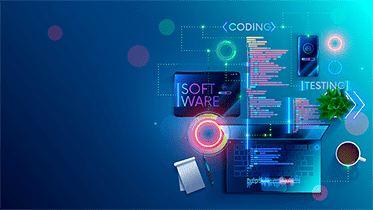Application Development Services: Choosing the Right Approach for Mobile and Workforce Automation
Introduction
The demand for application development services has skyrocketed in recent years due to the rapid advancement of technology. Businesses require efficient and scalable solutions to enhance workforce automation, improve productivity, and engage users effectively. One crucial decision in mobile application development is choosing between native vs hybrid app development. Additionally, generative AI app development is revolutionizing various industries by enabling intelligent automation and personalized user experiences. This article explores these aspects in-depth, helping businesses make informed decisions.
Understanding Application Development Services
Application development services encompass the process of designing, building, testing, and deploying software applications. These services cater to various industries, helping companies achieve digital transformation and optimize workflows. Organizations leverage these solutions to enhance efficiency, improve customer engagement, and streamline operations. Whether businesses require enterprise apps or consumer-focused solutions, mobile application development plays a crucial role in modern digital strategies.
Native vs Hybrid App Development: Key Differences
When investing in mobile application development, businesses must decide between native vs hybrid app development. Each approach offers distinct advantages and drawbacks depending on the project’s requirements.
Native App Development
Native apps are built specifically for a single platform, such as iOS or Android, using platform-specific languages like Swift (iOS) and Kotlin (Android). These apps provide superior performance, seamless user experiences, and better security features. However, developing native applications can be costly and time-consuming due to the need for separate codebases for different platforms.
Benefits of Native App Development:
High performance and optimized speed.
Enhanced user experience with platform-specific UI components.
Better access to device features and functionalities.
Increased security and data protection.
Hybrid App Development
Hybrid apps combine elements of both native and web applications. They are developed using web technologies like HTML, CSS, and JavaScript and then wrapped in a native container using frameworks such as React Native or Flutter. While hybrid apps enable faster development and cost-effectiveness, they may suffer from performance limitations compared to native applications.
Benefits of Hybrid App Development:
Faster development and reduced costs.
Single codebase for multiple platforms.
Easier maintenance and updates.
Broader reach and accessibility.
Workforce Automation Through Mobile Application Development
The rise of workforce automation is transforming business operations by streamlining repetitive tasks and improving overall efficiency. Companies are increasingly leveraging mobile application development to automate workflows, optimize resource management, and enhance communication between employees.
How Mobile Apps Drive Workforce Automation
Task Management & Scheduling – Mobile applications help businesses assign and track tasks, ensuring timely completion and improved productivity.
Real-Time Communication – Chat and collaboration apps enable seamless communication among employees, regardless of location.
Data Collection & Reporting – Automated data collection apps eliminate manual processes, reducing errors and enhancing decision-making.
Remote Access to Resources – Employees can access essential tools and information from mobile apps, improving flexibility and efficiency.
AI-Driven Insights – Integrating AI into workforce automation apps allows businesses to analyze data and optimize operations proactively.
Generative AI App Development: The Future of Intelligent Applications
Generative AI app development is transforming the way businesses interact with customers and automate processes. AI-powered applications can generate content, analyze patterns, and make intelligent recommendations, enabling businesses to deliver personalized experiences and improve operational efficiency.
Applications of Generative AI in Mobile App Development
Chatbots & Virtual Assistants – AI-driven chatbots enhance customer service by providing instant responses and personalized support.
Content Generation – AI can generate text, images, and videos, automating marketing and content creation efforts.
Predictive Analytics – AI applications analyze historical data to predict trends, helping businesses make data-driven decisions.
Automated Code Generation – AI-powered tools assist developers in writing and optimizing code, accelerating the development process.
Personalized User Experiences – AI analyzes user behavior to tailor recommendations and improve engagement.
Choosing the Right Development Approach
Selecting the best approach for mobile application development depends on business objectives, target audience, budget, and technical requirements. Native vs hybrid app development decisions should align with long-term goals and performance expectations.
Choose Native Development If: Performance, security, and seamless user experience are top priorities.
Choose Hybrid Development If: Faster time-to-market and cross-platform compatibility are essential.
Integrate Generative AI If: Intelligent automation and personalized experiences are key differentiators.
Conclusion
Investing in application development services is essential for businesses looking to enhance workforce automation, improve customer engagement, and stay ahead of technological advancements. The choice between native vs hybrid app development depends on factors such as performance needs, development time, and budget constraints. Additionally, generative AI app development is shaping the future of intelligent applications, enabling businesses to automate processes and deliver personalized experiences. By understanding these aspects, organizations can make informed decisions and drive digital transformation effectively.


Comments
Post a Comment